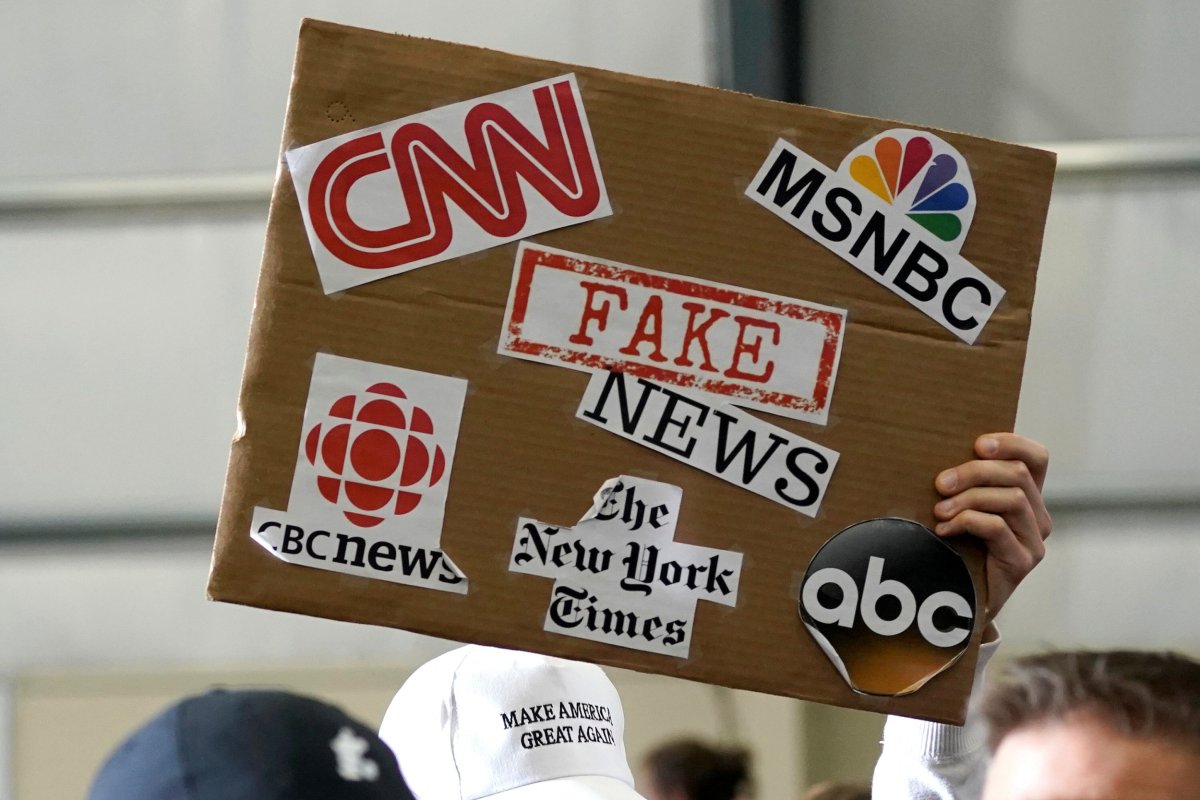Donald Trump's presidency has been largely defined by what he calls "fake news," but a new poll suggests Americans just can't tell the difference between fact and opinion when reading journalism.
Findings show that only a quarter of adult Americans could correctly distinguish between a factual statement and an opinionated point of view. The survey, conducted by the Pew Research Center, tested over 5,000 people. It presented them with five facts and five opinions and asked them to identify which was which. Only 26 percent were able to correctly identify all 10 statements.
Some people fared much better than others, including those with high political awareness or those who are good at navigating digital content. But for the most part, statements the participants agreed with were labeled as true and statements that they disagreed with were labeled as false or opinionated.

The issue is a bipartisan one, the study found, as both Republicans and Democrats tended to be swayed by party politics and were more likely to believe something to be accurate if it lined up with their diplomatic ideology.
For example, one statement told participants "immigrants who are in the U.S. illegally have some rights under the Constitution." Forty-three percent of identified Republicans called that statement factual while 65 percent of Democrats responded that it was true.
Another politically charged statement posed was "immigrants who are in the U.S. illegally are a very big problem for the country today." Only 19 percent of Democrats said that the statement was factual while 50 percent of Republicans believed it to be correct.
The "fake news" phenomenon flooded social media websites leading up to Trump's victory in 2016. The president even handed out "fake news awards" to members of the press who had made errors or who he felt had presented information in an ingenuine fashion.
FAKE NEWS - A TOTAL POLITICAL WITCH HUNT!
— Donald J. Trump (@realDonaldTrump) January 11, 2017
Recently Facebook and Google, along with other technology and social media companies, have been under fire for failing to tackle users who are posting misinformation online.
In an April congressional hearing, Facebook CEO and founder Mark Zuckerberg admitted that as the site has grown, "people have gotten a powerful new tool to stay connected to the people they love, make their voices heard, and build communities and businesses. But it's clear now that we didn't do enough to prevent these tools from being used for harm as well."
The survey authors contend that these findings demonstrate the need for the public to learn how to sort through news with a more critical lens, but also states that "at this point the U.S. is not completely detached from what is factual and what is not."
Uncommon Knowledge
Newsweek is committed to challenging conventional wisdom and finding connections in the search for common ground.
Newsweek is committed to challenging conventional wisdom and finding connections in the search for common ground.
About the writer
Alexandra Hutzler is currently a staff writer on Newsweek's politics team. Prior to joining Newsweek in summer 2018, she was ... Read more
To read how Newsweek uses AI as a newsroom tool, Click here.








